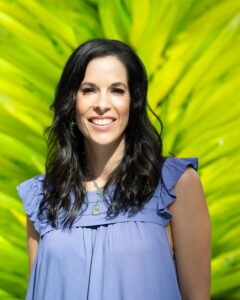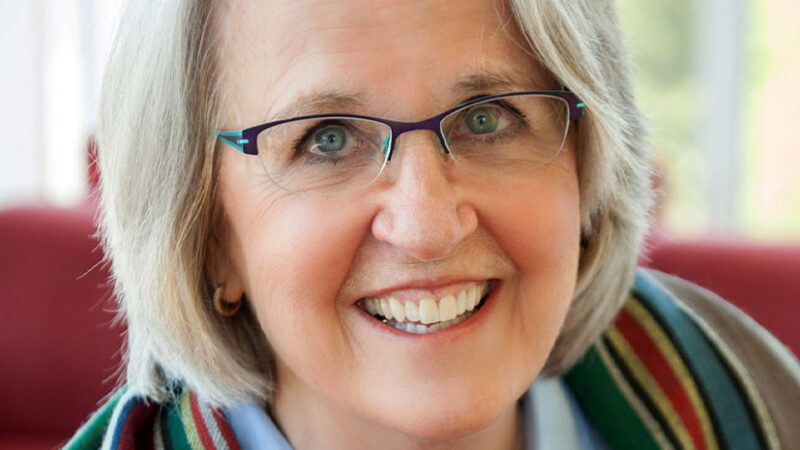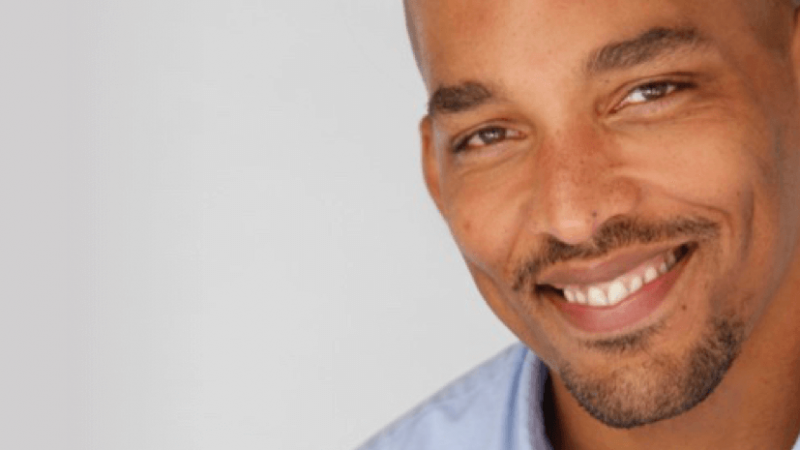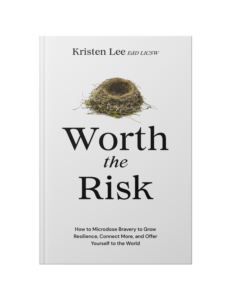-
E90: How to Stop Minding and Start Living
Michael Singer — June 29, 2025
“Do you mind?” We “mind” everything, from traffic to childhood memories, and this habitual...
-
Cyndi Dale: Becoming Your Own Best Ancestor
Cyndi Dale — July 1, 2025
On the surface, it appears as though the lives we live proceed forward moment by moment in a...
-
Honey Tasting Meditation: Build Your Relationship with Sweetness
There is a saying that goes “hurt people hurt people.” I believe this to be true. We have been...
Written by:
Amy Burtaine, Michelle Cassandra Johnson
-
Many Voices, One Journey
The Sounds True Blog
Insights, reflections, and practices from Sounds True teachers, authors, staff, and more. Have a look—to find some inspiration and wisdom for uplifting your day.
Standing Together, and Stepping Up
Written By:
Tami Simon -
The Michael Singer Podcast
Your Highest Intention: Self-Realization
Michael Singer discusses intention—"perhaps the deepest thing we can talk about"—and the path to self-realization.
This Week:
E90: How to Stop Minding and Start Living -
Many Voices, One Journey
The Sounds True Blog
Insights, reflections, and practices from Sounds True teachers, authors, staff, and more. Have a look—to find some inspiration and wisdom for uplifting your day.
Take Your Inner Child on Playdates
Written By:
Megan Sherer
600 Podcasts and Counting...
Subscribe to Insights at the Edge to hear all of Tami's interviews (transcripts available, too!), featuring Eckhart Tolle, Caroline Myss, Tara Brach, Jack Kornfield, Adyashanti, and many more.
Most Recent
E40: The Art of Living in the Now
Living in the present moment frees you from the burden of past experiences and anxieties about the future. Emotional and psychological blockages, formed by resistance to the past, will inevitably distort your mind’s view of reality and limit happiness. By practicing mindfulness, acceptance, and inner purification, you can learn to live in the present moment and embrace life’s challenges with enthusiasm and openness rather than fear and resistance.
For more information, go to michaelsingerpodcast.com.
© Sounds True Inc. Episodes: © 2025 Michael A. Singer. All Rights Reserved.
E39: Reconnecting with Your Natural State of Joy and L...
Much of our inner suffering arises from the accumulation of unresolved emotional experiences stored within. By learning to release these blockages and letting life’s events pass through without resistance, you can reconnect with your natural energy flow, which fosters love, creativity, and harmony. By practicing self-awareness and nonjudgment, and using life’s challenges as opportunities for spiritual growth, you can rediscover your true nature and live in a state of inner freedom, compassion, and fulfillment.
For more information, go to michaelsingerpodcast.com.
© Sounds True Inc. Episodes: © 2025 Michael A. Singer. All Rights Reserved.
Jeffrey Rutstein, PsyD: You Can Shift the State of You...
Our understanding of the human nervous system has grown exponentially in recent years, thanks to astounding discoveries from neuroscience, Polyvagal Theory, trauma research, Attachment Theory, and other emerging fields. No longer do we see the functioning of the nervous system as an unconscious process outside of our control. Today, we know that you can actually befriend and work with your nervous system to self-regulate in the face of emotionally triggering situations, release unresolved trauma from the “stuck places” inside, and reclaim a life of integration and wholeness. Sounds True’s annual training, The Healing Trauma Program, was designed expressly for these purposes. In this podcast, Tami Simon speaks with psychotherapist and lead teacher of the program Dr. Jeffrey Rutstein.
Tune in for an eye-opening conversation on: the connection between unhealed trauma and nervous system dysregulation; raising self-awareness around your personal triggers and conditioned responses; shifting from defensiveness to feelings of safety and belonging; chronic dysregulation; accurately discerning when you’re in danger; the vagus nerve, the ventral vagal response, and the “tend and befriend” zone where we can be fully present; the interplay of genetics and your upbringing in the formation of your “go-to nervous system states”; a nervous system approach to transforming self-blame and shame into self-compassion and worthiness; three pools of energy—hyperarousal, hypoarousal, and the Window of Tolerance; the empowering firsthand experience of changing your nervous system states; why there are no “bad” nervous system states; why being in a regulated state is so critical to healthy relationships; neuroception; simple, on-the-spot techniques (or “nervous system hacks”) you can use to self-regulate, from breathwork to gentle stretching and more; the shortcomings of talk therapy; co-regulation and the social engagement zone; the four key questions of the aspiring nervous system co-regulator; severe trauma and how “the state drives the story”; meditation practice, the true self, and the inner “hijacker”; and more.
Note: This episode originally aired on Sounds True One, where these special episodes of Insights at the Edge are available to watch live on video and with exclusive access to Q&As with our guests. Learn more at join.soundstrue.com.
Customer Favorites
Dr. Rachael Wooten: The Liberating Power of Tara
Dr. Rachael Wooten is a Zurich-trained Jungian analyst and psychologist who has been in private practice as a therapist for more than 40 years. An enthusiastic interfaith activist, she has studied and practiced in Buddhist, Jewish, Christian, and indigenous traditions throughout her adult life. With Sounds True, Dr. Wooten has written a new book called, Tara: The Liberating Power of the Female Buddha.
In this episode of Insights at the Edge, you are invited to get to know Tara as a very real and deeply empowering presence in your own life, as Dr. Wooten introduces you to the radiant figure beloved by millions in Tibet and across the world. In conversation with Tami Simon, she also discusses the 21 traditional emanations of Tara, the first steps involved in embarking on a relationship with Tara, and how to enlist her help at this particular time in history. (1 hour, 7 minutes)
Keep Trusting
Light Watkins is a spiritual teacher and nomad who travels the world sharing his wisdom on happiness, mindfulness, inspiration, and meditation. He is the author of The Inner Gym and the host of a weekly podcast about hope called At the End of the Tunnel. With Sounds True, Light has written a new book titled Knowing Where to Look: 108 Daily Doses of Inspiration. In this episode of Insights at the Edge, Tami Simon speaks with Light about the leaps of faith he takes in order to follow his heart. They explore bravery as being rooted in self-loyalty and self-trust rather than fearlessness. Light explains his unique approach to meditation, offers guidance for listeners who may have struggled with meditation in the past, and leads us through a short practice. Finally, Tami and Light discuss the possibility of transmitting inspiration and healing to our future and past selves.
Be What You Want to Receive: Three Ways to Experiment ...
At a time when we’re marinating in trauma and dealing with the test of a lifetime, we all wish things were different. When what we want from life is a million mile march from what it actually is, it can seem like we need a massive intervention to keep facing what’s at hand.
But research shows that small things can make a big difference. Just like stress is cumulative, so are the daily steps we take to grow and give.
Microdoses of bravery add up. To start, consider moving from asking what will the world offer me, to what will I offer the world? Tiny bits of strategic courage are sources of nourishment that can help you become what you want to receive.
Getting comfortable with the uncomfortable is a tall order, but worth doing. Microdosing bravery can help us build the strength and stamina that helps us heal, create, and liberate from fear, despair, and isolation.
Here are three ways you can experiment with microdosing bravery including journal prompts for reflection.

BE LOVE.
Loneliness is being called “the new smoking,” a modern health risk. For some, the global pandemic has strengthened relationships, allowing for bonding and teamwork like never before. For others, it’s wreaked havoc: leading to feeling smothered and stuck. For those living alone, distancing has been brutal, making love feel far from reach. Loss, whether through death, divorce, breakups, or other factors, singes our hearts. We can become avoidant and skeptical of our future potential to love and be loved.
When we strive to embody love, it’s essential to keep an open mind and heart. Loving connections are protective factors to our well-being. Consider these microdoses of bravery to strengthen your relationships, your sense of belonging, and the co-creation of new love paradigms in your life:
- Get real. Go through your friends on social media and make a list of all the real people in your life with whom you can be yourself. Make a conscious effort to spend time outside of social media. Thank them for being so real to you and vow you’ll do the same.
- Spark connection. Initiate a conversation with a partner or friend to see if you can build greater intimacy or camaraderie. To improve your connection, ask them what would mean a lot to them, and offer your own thoughts too.
- Seek affinity relationships. Write a short poem or essay about yourself to clarify your various identities and then seek an affinity connection. Invite that person for coffee. Don’t shy away from sharing yourself and nudging them to do the same.
- Be innovative. Create your own bravery microdose to help you be love.
Take note:
Write down what you chose to do and reflect on how it cultivated love in your life. Consider sharing this with someone you trust to help you maximize your efforts.
BE HEALING.
The level of trauma at hand has ravaged our lives, making healing feel elusive on a good day, impossible on a bad. Given the magnitude of suffering at hand, healing should not be trivialized as a three-step process. Healing requires enormous courage. Microdosing bravery can help us reach out and tap in to the many forms of restoration available to us.
Understanding how resilience works is a helpful way to begin healing. Gone are the days when it was viewed as a character trait—something you’re born with or not. There’s a lot of hype about being gritty and never letting anyone see you sweat that gets in the way of us finding the right support. Here are some ways to microdose bravery to foster healing and build resilience:
- Recognize you’re not alone. The biggest lie our difficulties tell us is that we’re the only ones dealing with such intense suffering. All of us are living in a global mental health crisis, with exorbitant pressures and crushing circumstances. Suffering is part of our shared humanity. Finding solidarity and safe community can serve as a catalyst to healing. As we get traction in our own healing process, our acts of courage can be nourishing and healing to those around us.
- Self-advocate. Healing requires intentional change in our communication. Many of us are comfortable and willing to give help, but few are asking for it. Identify one trusted person in your life that you know has the emotional maturity and skills to listen and support you. Tell them what you’re going through and work with them to identify potential roads toward healing, such as therapy, strategic behavioral change, and targeted self-care.
- Set boundaries. Untreated trauma and unresolved issues can haunt us and impair the quality of our lives. By paying attention to what we say yes and no to, we can ensure we are leaving space for growth after we’ve gone through significant stressors. Find language to courageously share what you can commit to, and what you cannot. Enlist support to help you firmly protect your time so that you can devote attention to healing and restoration.
- Identify resources. Take some time to scan your direct environment for things that nurture and sustain you. Select one or two things that can be microdosed to build your bravery.
Take note:
Write down things that help you experience healing. How can you continue to build off this?
BE A LIBERATOR.
Society can project a lot onto us, caging us into patterns of conformity that can become harmful. Freedom to live as our truest selves isn’t something that comes with safety or ease. The work of unhooking from social prescriptions and ills can be fraught and exhausting. Still, when we find the courage to call out injustice and fight for a more humane world, we can experience exuberance and help change paradigms.
When we strive to liberate, we realize that we must dismantle oppression. That we must advocate for inclusivity and human reverence, particularly for social identities that are marginalized and harmed. Constrained living hinders human progress, individually and collectively. Consider these microdoses of bravery to liberate from social constructs that are harmful:
- Let go. Take inventory of so-called social “norms” and become less apt to cower in the face of social impositions that are dismissive and destructive toward “difference.” Embrace your own multidimensionality, and that of humanity.
- Speak up. We all have opportunities to be active contributors rather than passive bystanders in the world. Practicing accountability means that we call out injustice and work to eradicate forms of human suffering and imprisonment—whether based on race, gender, orientation, age, place of origin, or other social identity categories.
- Practice human reverence. Move from me to we. See the glory and wonder across the human spectrum. Honor varied identities and perspectives. Work to find and engage in diverse relationships, rather than staying insular or spending time with those that look like, love like, and think like you. Become a liberator by standing fervently with those who’ve been marginalized, oppressed, or discriminated against. Seek ways to forge change, bit by bit.
- Break Free. Create your own bravery microdose to help you liberate.
Take note:
What do you need to be liberated from? Do you know someone who is struggling in a similar way? How might you join forces and work together to become freer?
 Kristen Lee, EdD, LICSW, is an award-winning Behavioral Science and Leadership professor, clinician, researcher, activist, comedian, author of Worth the Risk: How to Microdose Bravery to Grow Resilience, Connect More, and Offer Yourself to the World, and host of Crackin’ Up. She has over two decades of clinical experience in mental health, and twelve years of teaching and leadership roles in higher education, focusing on underserved populations. She leads the Behavior Science program at Northeastern University. For more, visit kristenlee.com.
Kristen Lee, EdD, LICSW, is an award-winning Behavioral Science and Leadership professor, clinician, researcher, activist, comedian, author of Worth the Risk: How to Microdose Bravery to Grow Resilience, Connect More, and Offer Yourself to the World, and host of Crackin’ Up. She has over two decades of clinical experience in mental health, and twelve years of teaching and leadership roles in higher education, focusing on underserved populations. She leads the Behavior Science program at Northeastern University. For more, visit kristenlee.com.
Learn More
Amazon | Barnes & Noble | IndieBound | Bookshop | Sounds True







